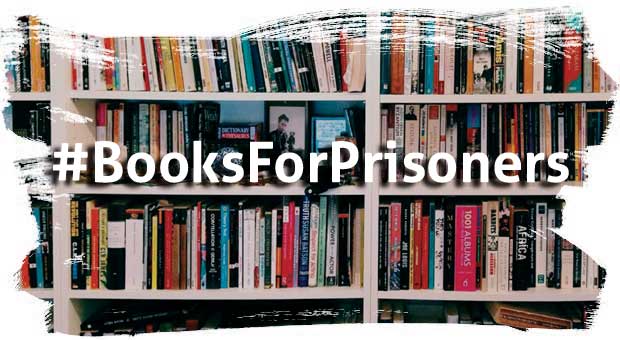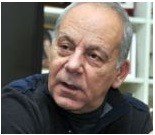A grotesque adventure started when I, a professor of political science at Marmara University, was arrested as a ‘terrorist’ on 1 November 2011.
That day was also the start of the blaming, naming, defaming, near-sighted campaign against me.
I was a member of the Peace and Democracy Party Assembly and busy co-authoring a research article on the Kurdish demand for democratic autonomy just prior to my arrest.
I tried to settle in my room in B6 in Bakırköy Women’s Prison in Istanbul. The ward B6 had 12 small rooms, two people slept in each, 24 women in total. This two-floor dormitory had about 400 books in its modest library then. And new books from friends and family members soon began to arrive. Books and letters mean more when you are behind prison walls.
Four books welcomed me. This was like people finding one another for solidarity. What kind of solidarity was this? How could the books support my case? Cats find you easily, but books? Do they pick people?
I read the blurbs and the first one that spoke to me was Juli Zeh’s Corpus Delicti (Body of Crime) translated into Turkish. The authorities think they victimise ‘the enemy’! The result is the free will of a woman! Mia Hall denies the ‘biological citizenship’ imposed on her. Her case, the court, the lawyer and Mia… Do read it.
The second one was the first novel by a young author whom I had known for many years, Irmak Zileli’s Eşik (Threshold). I had already bought this book before I was sent to prison; my sister was responsible for its reappearance. A little girl witnesses the political turmoil of the 1970s and 1980s in Turkey, critically observing her parents and their friends. She portrays all the problems, weaknesses and the sectarian attitudes of some of the activists; sometimes with respect and love for her parents, sometimes indirectly criticising them. This book made me remember all the short-sightedness we experienced during my first imprisonment as a socialist between 1972 – 74. But what most struck me about the book was the young girl’s growing ability to analyse the process.
The third book was by another young author whose recognition had also begun to grow: Ahmet Büke’s Ekmek ve Zeytin (Bread and Olive). He writes short stories, some of them really short. His characters are mostly politically marginalised people, whom he depicts in very sharp moments of resistance against human rights violations. His stories are like jumping onto cement. His fiction is striking and painful; but each piece gives you a very creative power of resistance.
And the last one was already in our ward’s library, a book written by Oktay Uygun, whom I also knew. This book was on Federalism – it was his PhD thesis. The first part of the book is theoretical work on federalism and con-federalism, and the second part looks at examples from all over the world. I used this book for the dormitory lectures which I started running in December 2011. The most amazing part of the book was that most of its conceptual content reflected the evidence used against me in the indictment.
The only evidence for my ‘terrorist’ activities was the seminar and meeting notes they found in my study.
All four of the books that welcomed me were on naming, blaming, victimising and recalling days of imprisonment when more and more books hold your hand and ask for your freedom. Fiction especially inspires me for richness in articulating a defence against injustice. Plurality of expression blossoms in your patience, along with moments of endurance.
A sudden joyful spirit embraced me. In prison I could read more and more literature that I longed for. Reading novels, poetry and short stories is not something that I often have time for. I have to read a lot for my academic work, and I still read slowly. I slowly travel with authors, sometimes I even write with them. This intimate relationship is amazing! I write with them; most often I do not go into the action of writing but I tend to bring in words from different worlds, make phrases unlike the ones I read and I ride on future memory. Though not a futurist, my memory exists with reflections towards the future, i.e. the desired, the needed, the hoped for.
‘Solidarity with books will be my new activism in prison’ I thought to myself. Two months later I started writing a series for bianet.org, a comprehensive internet journal for news, articles, arts criticism, gender issues and human rights. Most of the books I wrote on were novels, short stories, testimonies and literary monologues. They are not book reviews exactly – they reflect the plurality of thoughts, memories and desires that flooded into my mind in the shape of words and phrases while I read them.
Books started to arrive one after another. By the time I left B6 the number of books in our library was more than 1000, including ones sent by World Book Night givers.
To save my eyes for more books I first started to read the sky, then the clouds.
Now books do not find me just like that; I have some power over them but once I start reading any one of them past and future engage in a dance of free will. Books support our cases for more freedom. (BE/BM)
* This article originally appeared in English PEN.
* Professor Büşra Ersanlı is a Turkish academic and political scientist specialising in nationalism, historiography, political theory, and Kurdish political participation, politics and language rights. In October 2011, Ersanlı was arrested alongside publisher Ragip Zarakolu, one of Turkey’s most prominent freedom of expression activists and a leading member of PEN Turkey. Their arrests were part of a larger crackdown on pro-Kurdish politicians, lawyers, journalists and intellectuals known as the KCK operation, which has been underway since 2009 and has led to thousands of arrests and trials. The Koma Civakên Kurdistan (KCK) (Union of Communities in Kurdistan) is the alleged political front for the outlawed Kurdistan Workers’ Party (PKK), which has been engaged in armed conflict with the Turkish state since 1984. She was released pending trial in July 2012.







